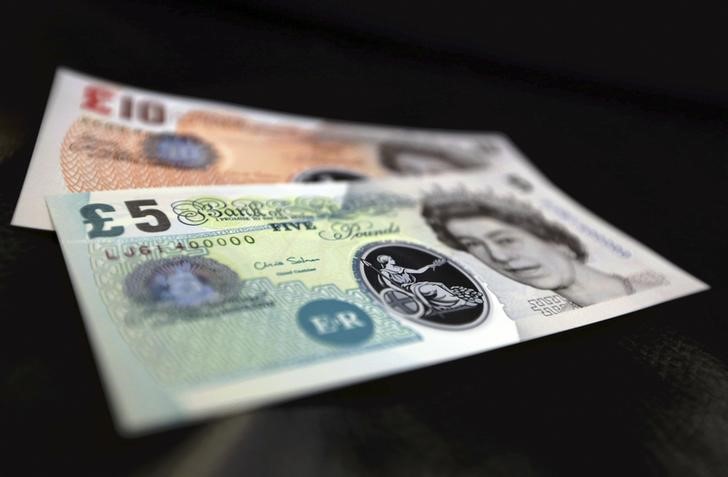By Jemima Kelly
LONDON (Reuters) - Sterling slipped against the dollar after a choppy day of trading on Wednesday, receiving no clear direction from Britain's formal triggering of its exit from the European Union.
Prime Minister Theresa May began Britain's divorce procedure from the EU earlier in the day, declaring there was no turning back and ushering in a tortuous process that will test the bloc's cohesion and pitch her country into the unknown.
The pound had touched an eight-day low of $1.2377
By 1550 GMT (11:50 a.m. ET), though, sterling had slipped back to $1.2403
"I think we'll continue to trade sideways until we get greater clarity on the European Union’s negotiating stance," said Societe Generale (PA:SOGN) currency strategist Alvin Tan.
May's six-page Brexit letter to European Council President Donald Tusk set a positive tone for the approaching talks, though it admitted that reaching a comprehensive Brexit agreement within two years would be a challenge.
Within 48 hours, Tusk will send the 27 other EU member states draft negotiating guidelines and they will later meet in Brussels to discuss the situation.
Tusk told reporters on Wednesday that the EU's goal was to minimize the costs for EU citizens, businesses and member states, whose leaders should adopt the negotiating proposals on April 29.
"The triggering of Article 50 was well anticipated, but the fact negotiations are now live means financial markets may become more vulnerable to commentary from European and/or UK officials as to how well - or poorly - the initial discussions are going," said Michael Metcalfe, global head of macro strategy for State Street Global Markets.
"Headline risk is back, if it ever really went away."
NEGOTIATIONS EYED
Britain's blue-chip FTSE 100 (FTSE) stock index - most of whose components get their earnings in foreign currencies - gained 0.4 percent as sterling fell.
Most analysts said the key driver for sterling over the coming months would be how negotiations with the EU play out, and the health of the British economy going forward.
The head of global bonds at the world's largest asset manager, BlackRock, said on Wednesday that he remains invested in the British pound, though he has concerns over the timeline for Brexit negotiations.
Sterling had hit an eight-week high at the start of this week as investors unwound record-high short positions against the currency, and brought forward their expectations for when the Bank of England might begin to tighten monetary policy amid rapidly accelerating inflation in Britain. "Given the positioning, our bias would still be toward a stronger pound over the coming weeks," said Derek Halpenny, MUFG's European head of global markets research in London.

Against a weaker euro, the pound rose 0.3 percent to 86.60 pence (EURGBP=D3), having earlier hit a 12-day low of 87.35 pence. The euro dropped sharply after sources told Reuters that European Central Bank policymakers are wary of making any new change to their policy message in April.